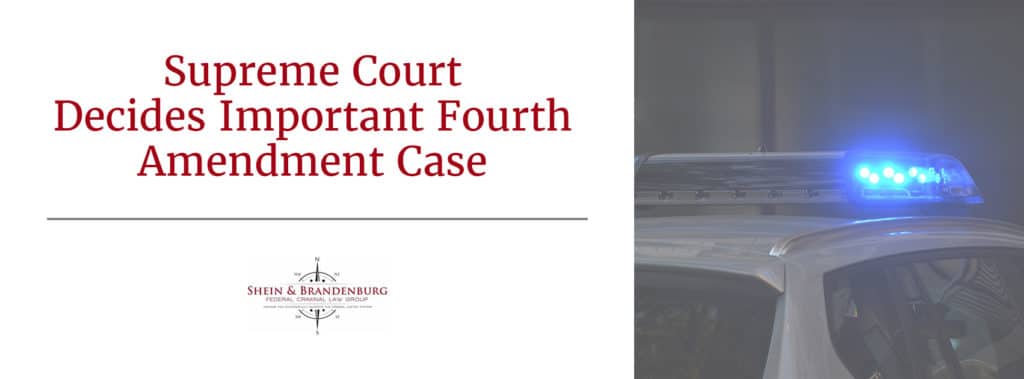The limits and powers of the Fourth Amendment, which protect against unreasonable searches and seizures, are particularly important to individuals in criminal trials. In a recent case heard by the Supreme Court of the United States, Manuel v. City of Joliet, a majority of the court ruled that the Fourth Amendment is the proper basis by which a person can challenge a post-arrest detention
The Facts of the Case
The case of Manuel involves a man who was allegedly pulled from his motor vehicle by law enforcement. Law enforcement then allegedly beat the man and called him racial slurs before eventually arresting the man on a drug based the charge. A field test performed on the pills found in the man’s possession came back negative. The man also alleges that a technician at the police station performed another test on the pills which also resulted in negative findings. On the basis of law enforcement’s reports, a county judge ordered the man to be imprisoned and the man was not released for several weeks.
The Legal Case Involved
The case in question arose from a legal action that the man took two years after the events. This lawsuit alleges that the man’s civil rights were violated under several federal laws including the Fourth Amendment. The first court to hear these allegations responded by dismissing the man’s case under the applicable two-year statute of limitations. The two-year statute of limitations, the court found, barred the man’s lawsuit because it had been filed more than two years after the date of his initial arrest. The court in question also found that a detention occurring after lawful behavior by law enforcement could only be initiated under the due process clause and not the Fourth Amendment. The man then appealed this case to the United States Court of Appeals for the 7th Circuit, which affirmed the lower court’s decision.
The Supreme Court’s Opinion
After the 7th Circuit’s decision, the Supreme Court of the United States heard the case and ruled that an unlawful pretrial detention can violate the Fourth Amendment. As a result, the court found that the Fourth Amendment can apply to activity that occurs both before and after the legal process in a criminal case. This statement by the Supreme Court has shed much light on this relationship between the Fourth Amendment and activity that occurs after a criminal is arrested. This recent decision has made it clear that is is against the law for law enforcement to detain an individual for a crime that law enforcement knows the individual did not commit.
Consult with a Knowledgeable Federal Criminal Defense Attorney
If you are arrested, interrogated or searched by law enforcement, the Fourth Amendment is one of the most important rights that you have. If you believe that your Fourth Amendment rights have been violated, it is wise to contact a skilled attorney who can help create a strong defense to make sure that your Constitutional rights are upheld. Do not hesitate to consult with the Federal Criminal Law Center today by contacting our law office at 404.633.3797 or completing our free convenient case evaluation form.


